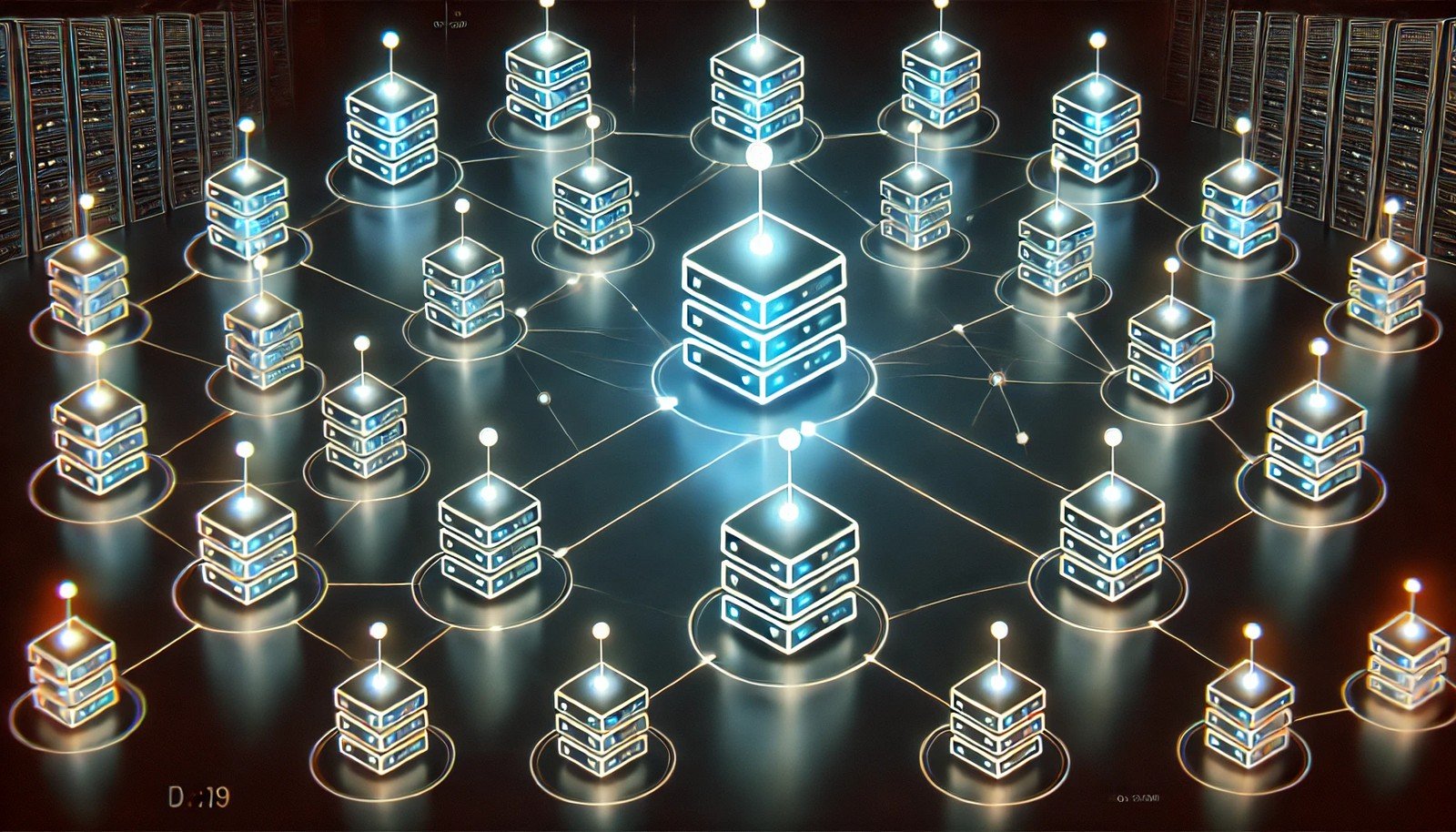Distributed System
 (Representational Image | Source: Dall-E)
(Representational Image | Source: Dall-E)
Quick Navigation:
- Distributed System Definition
- Distributed System Explained Easy
- Distributed System Origin
- Distributed System Etymology
- Distributed System Usage Trends
- Distributed System Usage
- Distributed System Examples in Context
- Distributed System FAQ
- Distributed System Related Words
Distributed System Definition
A distributed system is a network of independent computers that appear to the user as a single coherent system. These computers work collaboratively to share resources, handle tasks, and achieve a common goal, often over a network. Distributed systems are integral to applications like cloud computing, blockchain networks, and large-scale web services. Key features include fault tolerance, scalability, and concurrency.
Distributed System Explained Easy
Imagine a group of friends working together to complete a project. Each friend has a specific task, but they share information and coordinate to finish the work faster and better. A distributed system is like these friends, with computers sharing tasks and resources to achieve common goals efficiently.
Distributed System Origin
The concept of distributed systems emerged in the mid-20th century with advancements in networking and the need for resource sharing. It became mainstream in the 1970s as organizations sought ways to optimize computing power and decentralize operations.
Distributed System Etymology
The term "distributed" refers to the spreading of system components across multiple locations to enhance performance and reliability.
Distributed System Usage Trends
Distributed systems have become essential in today's digital landscape. With the growth of cloud computing, decentralized applications, and IoT, their adoption spans industries like finance, healthcare, and entertainment. The trend reflects a shift toward systems that are fault-tolerant, scalable, and globally accessible.
Distributed System Usage
- Formal/Technical Tagging:
- Cloud Computing
- Blockchain Technology
- Internet of Things (IoT) - Typical Collocations:
- "distributed system architecture"
- "fault tolerance in distributed systems"
- "distributed database management"
- "scalable distributed systems"
Distributed System Examples in Context
- Cloud platforms like AWS and Google Cloud rely on distributed systems for resource management.
- Blockchains use distributed systems to validate transactions and maintain decentralized ledgers.
- Social media platforms employ distributed systems to handle millions of concurrent users.
Distributed System FAQ
- What is a distributed system?
A network of independent computers working together as a unified system. - How does a distributed system differ from a centralized system?
A centralized system relies on a single control point, whereas a distributed system shares control across multiple nodes. - Why are distributed systems important?
They enhance scalability, fault tolerance, and resource sharing across networks. - What are common challenges in distributed systems?
Challenges include managing data consistency, fault detection, and network latency. - What is an example of a distributed system?
Blockchain networks like Bitcoin or Ethereum are classic examples. - How do distributed systems achieve fault tolerance?
By replicating data and processes across multiple nodes, ensuring reliability even if some nodes fail. - Can distributed systems work without the internet?
Certain localized distributed systems can operate without internet connectivity, but many depend on it. - How is load balancing achieved in distributed systems?
Load balancers distribute tasks across nodes to optimize resource utilization and performance. - Are distributed systems secure?
Security in distributed systems depends on encryption, access control, and secure communication protocols. - What role does middleware play in distributed systems?
Middleware facilitates communication and coordination between system components.
Distributed System Related Words
- Categories/Topics:
- Cloud Computing
- Blockchain
- Networking
Did you know?
The search engine Google is an example of a highly optimized distributed system, with thousands of servers worldwide working in harmony to process billions of searches daily.
PicDictionary.com is an online dictionary in pictures. If you have questions or suggestions, please reach out to us on WhatsApp or Twitter.Authors | Arjun Vishnu | @ArjunAndVishnu

I am Vishnu. I like AI, Linux, Single Board Computers, and Cloud Computing. I create the web & video content, and I also write for popular websites.
My younger brother, Arjun handles image & video editing. Together, we run a YouTube Channel that's focused on reviewing gadgets and explaining technology.



Comments powered by CComment